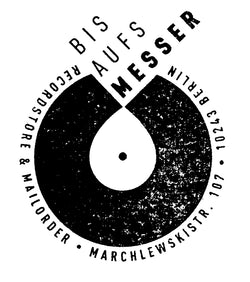Basilisk is immediately set apart by the introduction of electronic sounds, heard in the trippy, textural interlude “Sonder” or the froggy ribbits filtering through “Gasoline Rainbows.” The dark arpeggios on opener “Automaticity” rise in intensity until Robbins resembles Travis Morrison shouting over a CB radio, decrying the feeling of being, “so lifelike when you take your place to say what you’re expected to say.” “Dead Eyed God” takes an entirely different approach, gliding through glitchy beats, shimmery synths, and thunderous drums. When Robbins says he’s influenced by Peter Gabriel, the proof is in the pudding.
The album also includes frequent collaborators such as Robbins’s Office of Future Plans bandmates, alongside newer ones like Naked Raygun guitarist John Haggerty, who lays down a scorching solo on “Exquisite Corpse.” In the moments when Basilisk’s rockier tunes blur together, he tosses out curveballs like the burbling slide guitars of “Not the End” or swooning shoegaze riffs of “Open Mind”—a sample platter of the many sounds Robbins has explored over the past 35 years, united by his assured vocals.
“Last War” and “Dead Eyed God” ground the album in the present day as Robbins looks back to January 6th as a flashpoint for neo-fascism. Yet it’s “Deception Island” that could have the strongest appeal for fans of Robbins’s past work, picking up the pace with racing 32nd note hi-hats as he sings about recurring childhood dreams. Fans of Jawbox will love it, but Robbins has never been content to stay in one mode for long.

